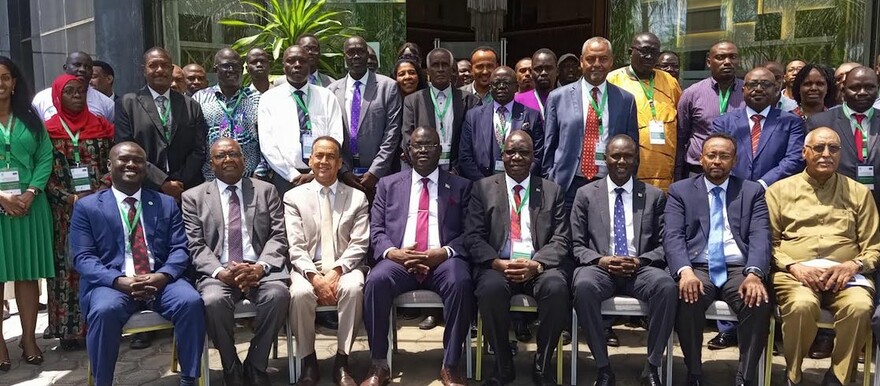The Inter-Governmental Authority on Development (IGAD), through the IGAD Climate Prediction and Applications Centre (ICPAC), on Monday convened a three-day regional forum in South Sudan’s capital Juba to discuss the threatening impacts of climate change in the Greater Horn of Africa.
The Greater Horn of Africa Climate Outlook Forum (GHACOF) event is routinely hosted by IGAD member states to promote the uptake and use of seasonal focus by the stakeholders, sharing good practices, and lessons learned to improve collaboration between national and regional meteorological and hydrological services and climate information to build regional expertise.
The forum aims to allow delegates from IGAD member countries and partners to come up with solutions on how to combat climate change impacts in the region.
The event is being attended by representatives from meteorological departments of IGAD member countries, the African Union, UN, members of the World Meteorological Organization, regional climate change organizations, members of the international community, eminent personalities, and ambassadors.
“The Directorate of the Meteorological Services at the South Sudan Civil Aviation Authority under the transport ministry has many challenges that need to be addressed through projects of the World Meteorological Organization,” said Majok Modu, South Sudan’s Director General of Meteorological Services. “We think the project, if implemented, will strengthen the weather observation networks in the country and it will also improve the institutional capacity of the directorate to be able to provide reliable weather and climate information and the services needed by the society.”
He underscored that the rainy season runs through May, June, July, August, and September and is vital for the people of South Sudan to do agricultural production.
The ICPAC-IGAD Director, Dr. Guleid Artan said the workshop is meant to improve climate services in the region in a bid to save 183 million people currently facing food insecurity in the Greater Horn of Africa as a result of climate change.
“The region has been affected in the last 15 years with disasters, we have only 3 years out of the 15 consecutive years that we can consider average. South Sudan in the last 5 years was underwater, and parts of Eastern and Central Greater Horn of Africa experienced drought for 5 consecutive seasons, we have also seen cyclones, especially in 2018,” he said. “I call on the government of South Sudan and our partners to support the development of the country’s national framework for climate services. Our collaboration is crucial in building a robust national system that can deliver critical climate information to all sectors of society.”
Artan added: “By working together, we can ensure that South Sudan is well prepared to face the challenges of climate change and can take proactive steps to protect its people and resources.”
Also speaking during the opening of the forum in Juba on Monday, South Sudan Minister of Transport, Road and Bridges, Simon Mijok Mijak, said climate information is vital to the people of the region.
“It is very important to equip our people in the region with climate information,” he said.
For his part, South Sudan Humanitarian Affairs Minister Albino Akol said the forum will bring solutions that would mitigate the impacts of climate change.
“Today, we are gathered here to discuss innovative solutions to mitigate the impacts of climate change in the region,” he noted.
Musa Ibrahim, a representative from the Sudan Meteorological Department, said both conflict and the impacts of climate change have exacerbated health issues and famine in the region.
“Conflict and extreme weather events together cause a lot of issues for insecure areas. They increase displacement and also worsen the health situation by bringing waterborne diseases caused by rainfall and heavy floods,” he noted.
According to the ICPAC meteorological and climate sectors, the recent reported disasters in the region were recorded between March and 20 May 2024. The catastrophes include; flooding, landslides, heat waves, drought or dry spells, cholera, malaria, etc. Equatorial sides in the IGAD region were heavily affected by floods with over 600, 000 people displaced regionally from March to May this year. Malaria surge was reported in Ethiopia while measles and cholera were reported in Sudan. Rwanda was impacted by landslides while most countries in the IGAD region recorded floods and drought.
The IGAD Climate Prediction and Application Centre also said it recorded a dry spell in parts of Uganda, while South Sudan recorded countrywide heat waves which killed at least 15 people between early March and April 2024.
The event is organized 3 times a year.




